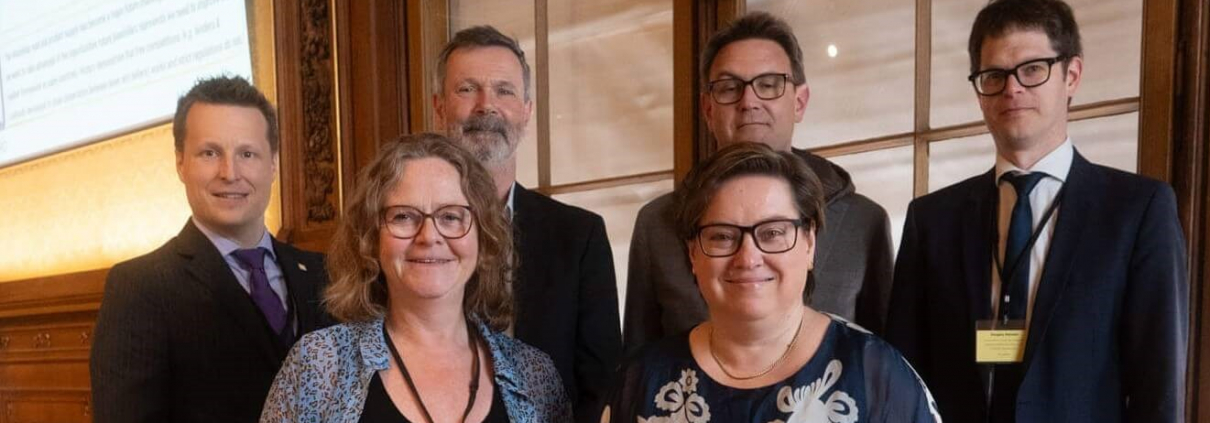Conference Report from the EURIPID Workshop
On 25 and 26 April 2024 the 5th PPRI Conference of the WHO Collaborating Centre for Pharmaceutical Pricing and Reimbursement Policies was held at the Palais Niederösterreich in Vienna. More than 250 participants from more than 40 countries discussed about burning challenges related to equitable and affordable access to medicines worldwide (https://ppri.goeg.at/news1). On the second day of the conference, the EURIPID Collaboration organised a workshop about „How the Euripid collaboration contributes to improving access to biosimilars“. The workshop was moderated by Claudia Habl who serves as Secretary of the Board of Participants (BoP) of the EURIPID collaboration. In her welcoming address she set the framework on Biosimilars, policies to encourage their uptake and remaining challenges regarding access to biosimilar medicines.
The first keynote was given by Gergely Németh from the Hungarian National Health Insurance Fund (NEAK) and project manager of EURIPID, who introduced the EURIPID collaboration to the participants of the workshop. He emphasised the data content of the EURIPID database and the possibility for researchers to apply for data extracts. Mr. Németh concluded his presentation with an outlook on the expected outcome of current activities like the EC grant „EURIPID access“ or involvement in the WHO-EURO Access to Novel Medicines Platform.
In the second keynote, Matjaž Marc from Agency for Medicinal Products and Medical Devices of the Slovenian Republic (JAZMP) talked about the „Impact of market entries of biosimilars in Slovenia“, a policy brief produced under the current EC grant. The analysis aimed to demonstrate the capabilities of information in the EURIPID database and which research questions could be answered with this data. The results pointed that in European countries considerable difference in the minimum wholesale unit price of the original (i.e. reference product) and biosimilar medicines remains. Compared to other European countries, the number products containing adalimumab available on the Slovenian market is comparably high. Furthermore, The overall annual expenditure on adalimumab-containing biologicals has been reduced since biosimilars‘ market entry at the end of 2018 due to reduction of the price of the original product and increased utilisation of cheaper biosimilars.
The last part of the workshop contained a high-quality panel discussion in which following experts additionally joined the podium: Liese Barbier (KU Leuven / European Medicines Agency), Dorthe Bartels (AMGROS), Francis Arickx (RIZIV-INAMI) and Frode Hellesnes (Biogen). After a brief introduction of themselves, all six speakers (key note speakers and panelists) discussed about several topics regarding biosimilar. If currenty regulatory approval procedures are deemed sufficient and if panelists would need more support by regulators. Measures to encourage the uptake of biosimilars and open points regarding prescribing requirements or compulsory substitution. The takeaway messages of the panelists were:
- To capture the benefits of biosimilar competition for patients and healthcare systems, not only today but also over future years, we need holistic policy measures, focus on stimulating sustainable competition over the longer term, and collective action across stakeholders
- Important to work close together and use the local/nationale system (competition and tender) to make the best set-up for launch biosimilar in the market. Quick uptake of biosimilar means great savings for payers, while at the same time more patients are in treatment
- Biosimilars are not necessarily Best Value Biologicals
- The biosimilar void and product supply has become a major future challenge. We are at a crossroad, if we want to take advantage of the opportunities future biosimilars represents we need to improve the market framework in many countries. History demonstrate that free competitions (e.g. tenders & contracts developed in close cooperation between buyer and sellers) works and strict regulations do not.



